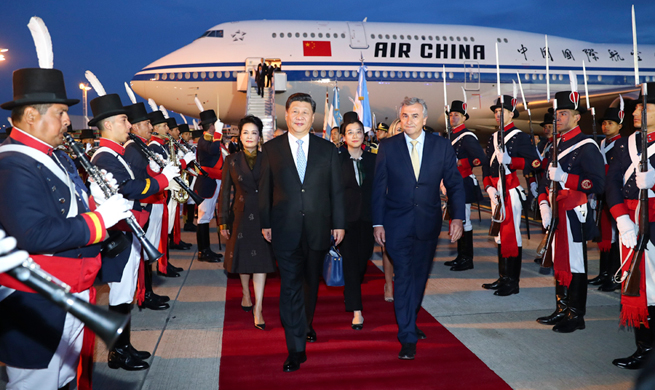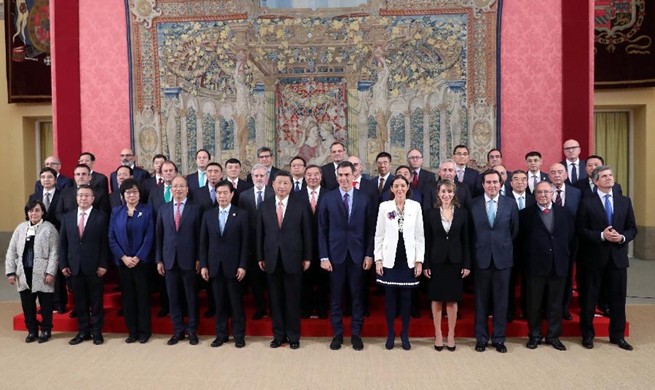RIO DE JANEIRO, Nov. 29 (Xinhua) -- Brazilian average life expectancy rose from 75.8 years in 2016 to 76 years in 2017, the country's Institute of Geography and Statistics (IBGE) announced Thursday.
Men continue to have a shorter life expectancy, according to the official statistics agency, with their average life expectancy increasing from 72.2 years in 2016 to 72.5 years in 2017, while women's rose from 79.4 to 79.6 years in the same period.
Regional differences persist, reflecting significant gaps in human development levels among different states.
Santa Catarina, a state in the richer southern region, registered higher life expectancy at 79.4 years. Maranhao state in the northeastern region had the lowest figure at only 70.9 years.
Brazil sees a tendency to increase life expectancy to the levels seen today in developed nations being around 83 years, according to IBGE researcher Marcio Minamiguchi.
However, it will be a gradual process, much slower than the improvement seen in past decades which was mostly due to a sharp decrease in infant mortality brought about by relatively cheap and easy actions, said Minamiguchi.
Due to deaths caused by external factors like vehicular accidents, a Brazilian man aged 20 is 4.5 times more likely not to reach 25 than a woman at the same age.
Infant mortality rates (deaths until one year of age) improved slightly from 2016 to 2017, decreasing from 13.3 to 12.8 deaths for every 1,000 living births.
Child mortality rates (of children up to five years of age) fell from 15.5 to 14.9 deaths for every 1,000 living births in the same period.
According to Minamiguchi, the tendency is for child mortality rates to drop faster than infant mortality, since death of infants is more often related to congenital health problems.
















